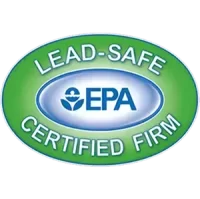Understanding When Water Heater Replacement Becomes Essential
Water heater replacement in Geneva, IL requires careful consideration of multiple factors that affect your home’s hot water supply and energy efficiency. Most water heaters operate reliably for eight to twelve years, though this lifespan varies significantly based on water quality, maintenance frequency, and usage patterns. At Energy Services Air Conditioning and Heating Company, we evaluate each situation individually to determine whether repair or replacement offers the best long-term value for your household. Signs indicating replacement include inconsistent water temperatures, visible rust or corrosion on the tank exterior, puddles forming around the base, unusual rumbling or popping sounds during operation, and metallic-tasting or discolored hot water.
The decision to replace rather than repair often comes down to economics and reliability. When repair costs exceed fifty percent of a new unit’s price, replacement typically makes more financial sense. Additionally, older units operate at lower efficiency levels compared to modern systems, meaning higher monthly energy bills that compound over time. Geneva’s hard water conditions, with mineral content averaging 120 to 180 parts per million, accelerate sediment buildup and tank deterioration, potentially shortening equipment lifespan below manufacturer estimates.
Modern Water Heater Technologies and Options
Today’s water heater market offers diverse technologies suited to different household needs and preferences. Traditional tank water heaters remain popular due to lower upfront costs and straightforward installation requirements. These units store thirty to eighty gallons of heated water, maintaining temperature through periodic heating cycles. Natural gas models typically cost less to operate than electric versions in Illinois, where natural gas prices average forty percent lower per BTU than electricity rates. However, electric models offer advantages including silent operation, no venting requirements, and installation flexibility in spaces without gas lines.
Tankless water heaters represent an increasingly popular alternative, heating water on demand rather than maintaining a reservoir. These units occupy minimal space, often mounting directly on walls, and eliminate standby heat losses associated with storage tanks. While initial investment runs higher than traditional tanks, energy savings of twenty to thirty percent typically offset costs within five to seven years. Heat pump water heaters extract warmth from surrounding air, achieving efficiency ratings three times higher than standard electric models. These systems work particularly well in basements or utility rooms where consistent temperatures support optimal operation. At Energy Services Air Conditioning and Heating Company, we’re proud to provide the best in HVAC and indoor air quality services to residential customers throughout Chicago and the surrounding communities.
Professional Installation Process and Requirements
Proper water heater installation involves numerous technical considerations beyond simple equipment swapping. Local building codes in Geneva mandate specific requirements for venting, electrical connections, gas piping, and safety devices. Our installation process begins with comprehensive site evaluation, examining existing plumbing configurations, available fuel sources, electrical capacity, and physical space constraints. We verify proper sizing based on household size, simultaneous hot water demands, and peak usage patterns. Undersized units struggle to meet demand, while oversized systems waste energy and experience shortened lifespans due to excessive cycling.
Installation typically requires four to six hours for standard tank replacements, though complications like outdated plumbing or code violations may extend timeframes. We remove existing equipment carefully, protecting surrounding areas from water damage during disconnection. New installations include updating shut-off valves, installing expansion tanks where required by code, adding or replacing temperature and pressure relief valves, and ensuring proper venting for gas models. Electrical connections must meet National Electrical Code requirements, including appropriate wire gauging, grounding, and circuit protection. Gas connections require leak testing using electronic detectors and soap solutions, verifying safe operation before commissioning.
Energy Efficiency Considerations and Cost Savings
Energy efficiency ratings significantly impact long-term operating costs for water heaters. The Energy Factor rating measures overall efficiency, considering standby losses, cycling losses, and combustion efficiency for gas models. Modern high-efficiency units achieve ratings exceeding 0.95 for gas tankless models and 3.5 for heat pump systems, compared to 0.60 for standard tank heaters manufactured before 2015. These improvements translate directly to utility savings, with efficient models reducing water heating costs by hundreds of dollars annually.
Federal regulations implemented in 2015 established minimum efficiency standards based on tank capacity and fuel type. These standards eliminated many inefficient models from the market while spurring technological improvements. Many utilities, including those serving Geneva residents, offer rebates for qualifying high-efficiency installations, offsetting initial purchase premiums. Whether you need to find the right HVAC system for a new home or want to have maintenance completed on your current system, you can count on us to provide expert guidance on maximizing efficiency within your budget constraints.
Maintenance Requirements and Longevity Factors
Regular maintenance substantially extends water heater lifespan while maintaining peak efficiency. Annual flushing removes sediment accumulation that insulates heating elements from water, forcing systems to work harder and consume more energy. Geneva’s mineral-rich water accelerates sediment formation, making bi-annual flushing advisable for optimal performance. Anode rod inspection and replacement prevents tank corrosion by sacrificing itself to protect steel components.
- Temperature setting verification: maintaining 120 degrees Fahrenheit balances comfort with safety and efficiency
- Pressure relief valve testing: ensuring proper operation prevents dangerous pressure buildup
- Insulation inspection: adding blankets or pipe wrapping reduces standby losses
Professional maintenance identifies developing problems before catastrophic failures occur, preventing water damage and emergency replacement situations. Our technicians examine connections for corrosion, test safety controls, measure combustion efficiency for gas models, and assess overall system condition during service visits. Documentation of maintenance history supports warranty claims and provides valuable data for replacement timing decisions. Investing in preventive maintenance typically extends equipment life by three to five years while maintaining efficiency levels closer to original specifications throughout the operational lifespan, maximizing return on your water heater investment.










